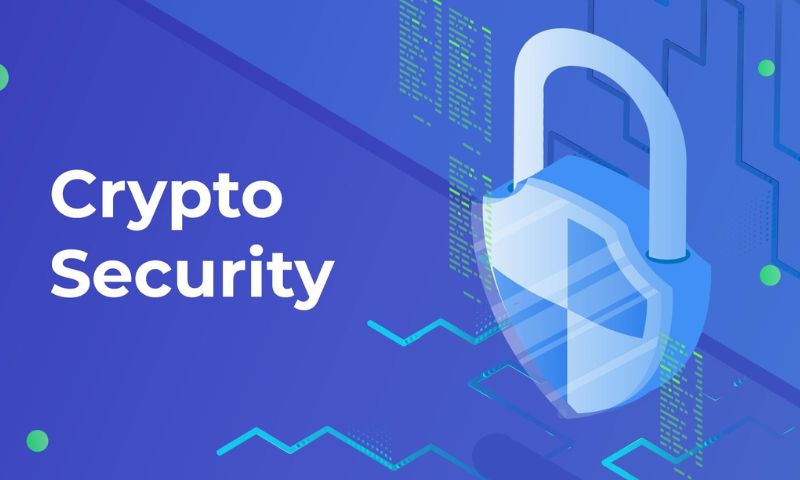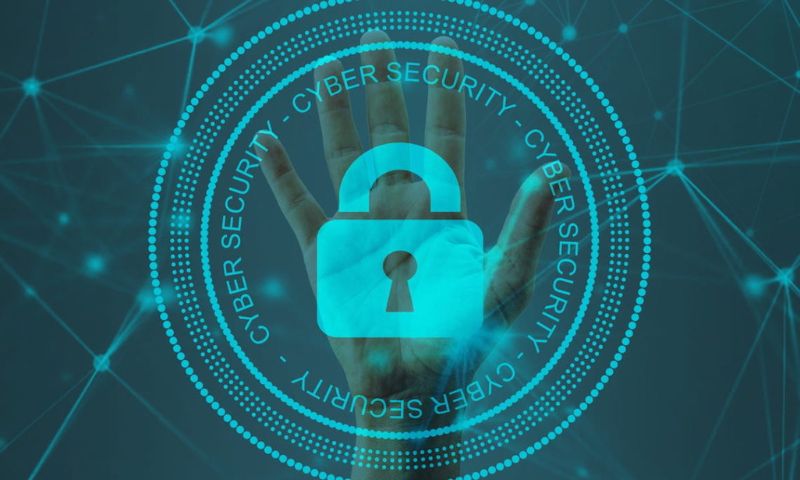Crypto Security Solutions: Your digital coins are like treasure that needs a strong vault. In a world where hackers are lurking around every corner, understanding how to protect your crypto is vital. With my expert guidance, you’ll nail the must-dos and must-haves to keep your digital wealth secure. We’ll kick things off by diving into wallet safety, the non-negotiables of multi-factor authentication, and the art of managing those tricky private keys. Then, it’s all about solid armor for your assets with cold storage and keen-eyed detection systems. I’ll even decode the real-deal encryption tactics and protocols that safeguard your transactions like a high-tech shield. As threats evolve, we don’t just keep up; we stay ahead. From auditing smart contracts to outsmarting cryptojacking, this is your playbook for an impenetrable crypto defense.
Understanding Cryptocurrency Wallet Security
The Significance of Multi-factor Authentication for Crypto
Think of multi-factor authentication (MFA) as a superhero for your crypto wallet. It puts up more walls between your funds and hackers. Now, why use MFA? Because one lock is easy to pick, right? But imagine if you need three keys for one lock. That’s harder to beat!
Does MFA really make my wallet secure? Yes, it’s like having guards check you multiple times. Each check makes your wallet harder to crack. For crypto, it’s a game-changer.
MFA combines things you know, have, and are, to protect your wallet. A password, a mobile app code, and your fingerprint make a strong team. This stops hackers even if they have your password. The trick is to pick different kinds of checks. That way, if one fails, the others still guard your coins.
Best Practices for Private Key Management
Your private key is a secret code. It locks up your crypto wealth. If someone steals it, they steal your coins. So, keep it safe, right? Exactly! But, how?
A good start is to write it down and hide it. Never online, never on a computer. Pen and paper, old school but safe. Think of it as a treasure map to your digital gold. You wouldn’t just leave that lying around.
Could my private key be safer? You bet! Get a hardware wallet. It’s a bit like a safe for your crypto keys. Only this safe can talk to your computer without letting viruses in. It’s like sending your key in an armored car every time you sign a transaction.
Better still, split your key into pieces. This is called sharding. Store them in different places. Even if someone finds one piece, they can’t do much without the rest. It’s like having a puzzle with missing pieces.
To protect your crypto, guard your keys like a hawk. Use MFA and manage your keys like a spy hiding secrets. This way, you build a fortress for your digital riches.
With these steps, your wallet becomes a tough nut to crack. And that’s what we want, right? A safe place for our hard-earned crypto.
Implementing Advanced Safeguards for Digital Assets
Leveraging Cold Storage Solutions
When it comes to safeguarding digital assets, we can’t mess around. Think of cold storage solutions as a hidden vault for your digital wealth. Unlike online wallets, cold storage keeps your cryptocurrency offline. This means it’s safe from hackers. Hardware wallets are one kind of cold storage and they are super safe. They look like USB drives but are built just for crypto.
Why are hardware wallets one of the best choices? They keep private keys away from the internet. That means even if a hacker gets into your computer, they can’t get your crypto. Plus, to make a transaction, you need the actual device and a PIN. It’s like having a bank in your pocket. But, you must keep it secure. If it gets lost, getting your crypto back can be tricky.
Strengthening Exchanges with Intrusion Detection Systems
Now, let’s not forget about the online side of things. Exchanges are where we trade crypto, so they must be tight as a drum. Intrusion detection systems (IDS) are like high-tech guards. They watch the network all the time. They notice if something fishy is going on and alert the team. An IDS can spot a cyber-thief before they can do real harm. They track everything and make sure no one sneaks in or does bad things.
Some IDS even learn and get smarter over time. They know users’ habits and can tell if something’s off. For instance, if there’s a login from a new place or a huge transaction, they’ll check it out. This is how we corner sneaky hackers. Plus, these systems can fix weak spots and even help us get ready for new threats. It’s like making your cyber walls higher and stronger every day.
Securing exchanges is not just about stopping break-ins. It’s also about making sure rules are followed. Like with any money stuff, we must be good with laws and do the right things, like stopping money laundering. That’s where KYC (know your customer) and AML (anti-money laundering) rules come in. They make sure all users are who they say they are and keep things clean.
Remember, staying safe in crypto means being smart and using the right tools. Use cold storage for holding your crypto long-term and be sure your trades happen on exchanges with iron-clad security systems. Keep your eyes open for red flags and always follow the rules. It’s our best shot at keeping our digital cash out of the wrong hands.
Leveraging Encryption and Security Protocols for Transaction Safety
Encryption Techniques in Cryptocurrency
When you use crypto, keeping your coins safe is key. Think of encryption like a super-tough lock. It scrambles your data so only the right person can see it. Every time you do a crypto deal, robust encryption kicks in. This keeps your transaction and personal info away from prying eyes.
One popular method is end-to-end encryption. Only you and the other person in the deal can unscramble the data. It’s like a secret chat, where only you two hold the key. Your coins move safely, unseen by hackers. That’s peace of mind, right there.
Utilizing VPNs to Enhance Crypto Transaction Security
Even as you lock down your transactions, another layer makes it even safer. It’s called a VPN, short for Virtual Private Network. A VPN hides your internet footprints. Imagine leaving no tracks in the snow, that’s what it does online. It makes sure others can’t snoop on your deals.
Using a VPN when you trade crypto adds a cloak of invisibility. It mixes up your online address each time you connect. This means fewer chances for the bad guys to catch on. It’s an extra wall between you and the digital thieves.
In this digital age, your wealth isn’t just about dollars and coins. It’s in your online moves, too. That’s why safety in crypto is something you can’t ignore. Use tough encryption and a trusty VPN to keep your digital wealth under lock and key. Because out there, it’s you against the hackers. And with the right tools, you’re winning.
Fortifying Blockchain Ecosystems Against Emerging Threats
Auditing Smart Contracts for Vulnerabilities
Smart contracts are like the rules of a game. But these digital rules are set in code on the blockchain. They handle money, agree to terms, and shall never make mistakes. Such a high stake means they’ve got to be perfect. Yet, bad actors tirelessly hunt for kinks in their armor. That’s where I come in.
I dive deep into smart contract code, hunting for any weak spots that could cause trouble. Think of me as a digital detective looking for clues to stop thieves. I check for issues like re-entrancy, where someone tricks the contract into giving them more money. Or time-stamping vulnerabilities, which can mess up how contracts decide the order of events. Fixing these holes is mission-critical. When one is found, I act fast.
After spotting dangers, I team up with developers. Together, we lock down smart contracts tight. My goal? A digital fortress where your assets are safe.
Strategies for Defending Against Sophisticated Cyber Attacks such as Cryptojacking
Next up, there’s a threat out there called cryptojacking. It’s sneaky. Hackers use your computer to mine cryptocurrency, and you won’t even know. Your device slows down, burns through power, and the hacker quietly makes money off of your back. Defending against this requires smarts and the right gear.
Let’s gear up. Multi-factor authentication (MFA) is like having a secret handshake, a hidden tattoo, and a voice password, all in one. It ensures only you can access your crypto account. Next, did you ever play hot potato? It’s risky to keep digital wealth in one place too long. Cold storage solutions cool things down. They’re like super safe treasure chests disconnected from the net.
Another move is having a hardware wallet. Think of it as a trusty sidekick for your digital coins. It holds on to your private keys, never letting them touch the online world unless needed for a transaction. Also, updating your defenses is a must. Intrusion detection systems are like guards that never sleep, always watching for break-in attempts on your crypto. If anything weird pops up, they raise the alarm. So, even when you’re counting sheep, your digital gold is under a watchful eye.
Biometric security for your crypto wallet? Now that’s top-notch. Faces, fingerprints, eyes – these unique bits of you become the key nobody else has. Now combine all this with a VPN, ensuring your data travels incognito, safe from prying eyes.
The key to tackling crypto security is staying ahead of the game. As threats evolve, so do I. I turn over every virtual stone, making sure the blockchain stays solid – a protector in the wild west of the web. Your digital wealth is a treasure. Together, we’ll keep it out of the wrong hands.
In this post, we’ve peeled back the layers of cryptocurrency wallet security. We’ve seen the huge role of multi-factor authentication and shared smart ways to handle your private keys. We then dived into using cold storage and detecting break-ins to protect your digital gold. Encryption and VPNs were up next, keeping your transactions safe.
But it’s not just about these steps. As threats grow, staying ahead is key. Regular checks on smart contracts and smart strategies against sneakier attacks like cryptojacking are your shield.
Remember, securing crypto is a constant battle. But with the right knowledge and tools, you can win. Stay alert, stay safe, and keep your digital treasure locked down tight.
Q&A :
What are Crypto Security Solutions?
Crypto Security Solutions refer to measures and tools designed to protect digital assets and transactions in the cryptocurrency space. These solutions encompass hardware, software, and strategic practices utilized to secure wallets, private keys, and personal data against unauthorized access, cyber theft, and fraud.
How can I enhance the security of my cryptocurrency holdings?
Enhancing the security of your cryptocurrency holdings involves multiple steps, including:
- Utilizing reputable hardware wallets to store large amounts of cryptocurrencies offline.
- Encrypting software wallets with strong passwords and two-factor authentication (2FA).
- Keeping software and hardware up-to-date with the latest security patches.
- Being vigilant about phishing attempts and only using trusted platforms for transactions.
What is the best way to store cryptocurrencies safely?
The best way to store cryptocurrencies safely is by using hardware wallets, also known as cold storage. These devices store your private keys offline, making them immune to online hacking attempts. It is also essential to back up your recovery phrases securely in case the hardware wallet is lost or damaged.
Are Crypto Security Solutions necessary for all cryptocurrency users?
Crypto Security Solutions are necessary for all cryptocurrency users as they mitigate the risk of digital asset theft, which is particularly high in the cryptocurrency market due to its anonymity and irreversible transactions. Both casual traders and long-term investors benefit from applying robust security measures to ensure the safety of their funds.
What are common threats to cryptocurrency security?
Common threats to cryptocurrency security include, but are not limited to:
- Phishing scams that trick individuals into revealing sensitive information.
- Hacking of exchange platforms and wallet software.
- Malware that targets cryptocurrency transactions.
- Loss or theft of physical hardware wallets.
- Unauthorized access due to weak passwords and lack of 2FA.



